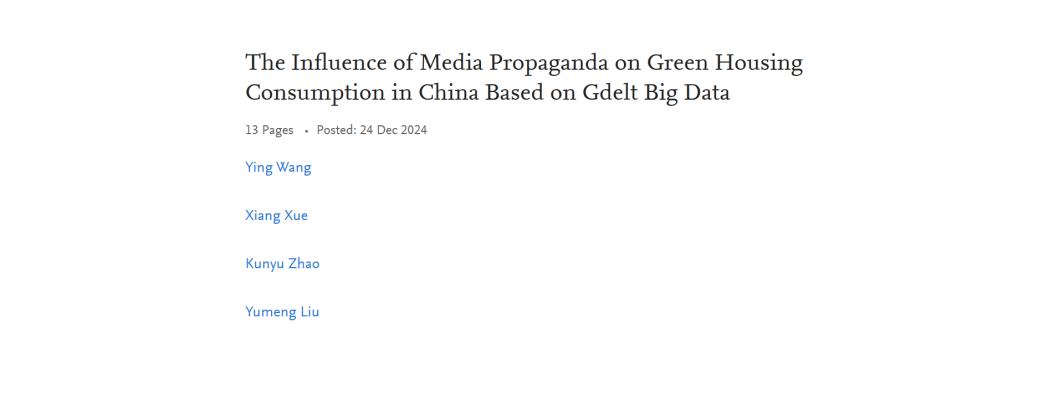
As part of China's two-carbon strategy, green buildings are a vital component in addressing climate change.Formulating a media propaganda strategy to promote green housing is of paramount importance. A panel model was constructed to empirically analyze the impact of different media propaganda contents on the consumption scale of Green housing market in 26 provinces of China. Utilizing GDELT media big data, the pre-trained language model ALBERT was employed to identify media data of different propaganda content. Subsequently, the entropy weight method was employed to construct the media communication effectiveness index and generate local data of media promotion based on education level, information level, and family income level. Combining this with real estate investment, per capita GDP, and other factors that influence the growth of the green housing market, an empirical model was tested. It has been revealed that media propaganda has a positive influence on the consumption of the green housing. In terms of propaganda content, media propaganda related to green building projects, policies, and knowledge has a considerable positive effect on the expansion of the green housing, with the media Propaganda related to green building policies and knowledge having the most significant driving force.